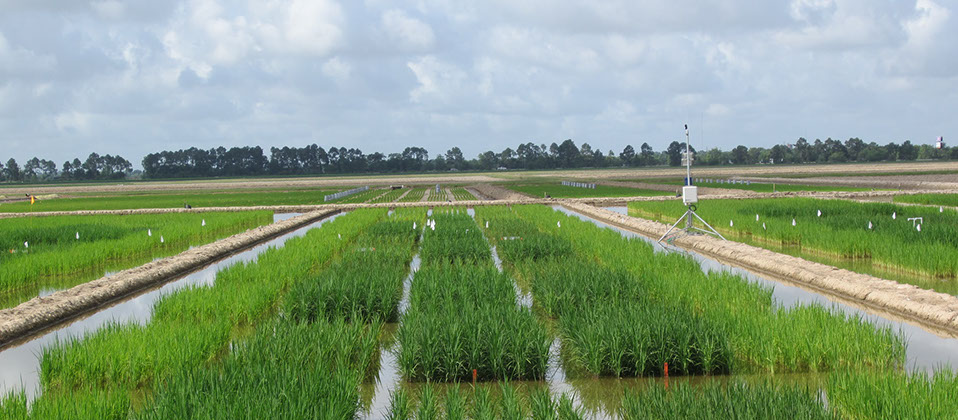DEPARTMENT OF
ENTOMOLOGY

Current Research Interests
Our lab studies basic and applied aspects of plant-insect interactions. We focus our studies in rice, an important model system for the study of plant-pest interactions and an important food crop in Louisiana and the world. We also have projects involving soybean and sweet potato. The most important insect pests of rice in Louisiana are the rice water weevil (Lissorhoptrus oryzophilus), the rice stink bug (Oebalus pugnax), and a complex of stem-boring Lepidopterans. Areas of research with these pests include the biochemical and physiological bases of plant resistance and tolerance to herbivores, identification of resistant plant varieties and their integration into management programs, hormonal mediation of plant resistance, trait-mediated interactions and their implications for pest management, plant mycorrhizal associations and their implications for plant resistance, the use of elicitors of plant resistance in pest management, and the conceptual basis of plant resistance research.
Our lab is also responsible for developing and implementing management programs for insect pests of rice. This aspect of our lab’s responsibilities includes evaluation of insecticides, development of thresholds for the use of insecticides, and characterization of the impact of cultural practices on pest populations. Our lab also does a lot of extension work. We regularly speak to growers and consultants to inform them about the latest developments in rice pest management. We are currently conducting workshops on stem borer management in rice in response to the growing threat of borers in rice.
We incorporate a variety of approaches and techniques into our research, including small-plot field experiments, greenhouse and laboratory assays of plant resistance, quantification of resistance-related traits (including volatile organic compound collection and identification), and transcriptome analysis. We have a number of international collaborations, and have hosted visiting scientists from Brazil, China, India, Thailand, and other rice-producing countries.
I teach a graduate-level course on host-plant resistance to arthropods (ENTM 7002), and an undergraduate, non-majors biology course (AGRI 1005).
